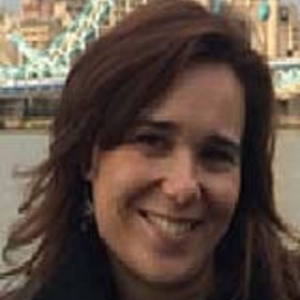Title : Neurobiology and End-Stage Renal Disease. Neurosciences Contributes for the conceptual strength of Nephrology Social Work
Abstract:
The End-Stage Renal Disease (ESRD) is a worldwide public health problem. For about 70 years, the scientific community has been aware of and has focused on the study of kidney function deficiencies and cognitive decline. There is empirical evidence that ESRD is associated with various brain function disorders (Sedaghat, S. et. al (2014). It is also known that at all stages of the disease, these patients have a higher risk of developing dementia than the rest of the population.
Social work is a practice-based profession and an academic discipline of social and human sciences that promotes social change and development, social cohesion, and the empowerment and liberation of people It recognizes that interconnected historical, socio-economic, cultural, political and personal factors serve as opportunities and/or barriers to human well-being and development (IFSW, 2014).
In this relation between factors and based on publications that associate Social Work to the neurosciences, several authors, among whom Egan (2001), Matto (2013), Dziegielewski (2010), Garland & et.al. (2009) refer that these new insights provide crucial contributions to understand human behaviour and the surrounding environment for social intervention.
For example, in brain injury acquired, Carey (2012, p.15) refers that “without assessing for brain injury, social workers may increase the risk of setting clients up for failure - assuming they will remember information and interactions from meeting to meeting when they may suffer from short-term memory loss - or attributing verbal aggression pent up rage rather than to a physiological reaction to a brain injury (…)”.
Also refers that identifying brain injury is important for social worker’s job because:
- People at high risk for brain injury are likely to be in settings in which social workers practice, such as shelters, mental health facilities, developmental disability programs, and domestic abuse facilities;
- Affect the individuals with the brain injuries and those involved in their lives, such as family members, employers and other social contacts, and the primary goals for social workers is to advocate for people who are in need and work to tackle social issues;
- Help to become more aware of the incurred losses experienced and assistance to navigate in the health care and rehabilitative process.
In the context of haemodialysis (existing since the 1960s), Social Work is the element of the interdisciplinary team that evaluates and intervenes in the social determinants of health and in the psychosocial factors which can have great impact on the clinical well-being. However, in its evaluations and practices in this field and from a bio-psycho-social perspective, Social Work has not yet integrated the multidisciplinary knowledge of the neurosciences to help dealing with challenging and complex social problems in its target groups.
Within this framework, using a literature review and a reflective analysis, in this poster we aim to point out the existing interdependencies between the body of knowledge of Social Work in Nephrology and in ESRD's neurobiology, with the desire to contribute to the analysis of its implications in the practice of Social Work in Nephrology, by identifying potential interdependencies.




